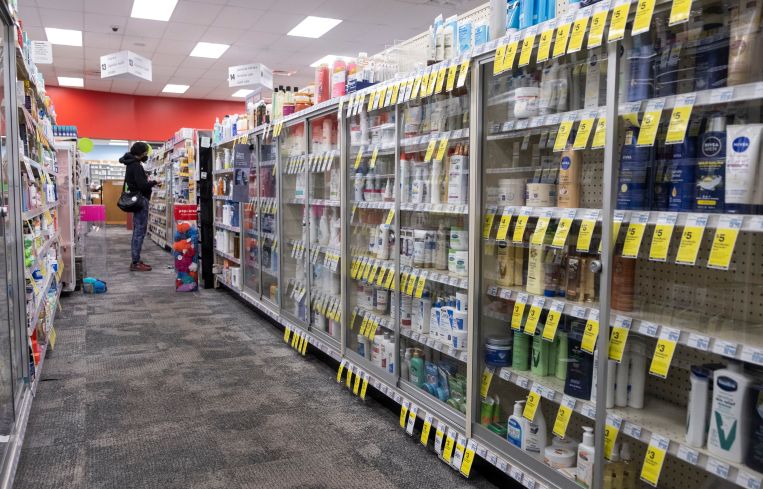Retail Theft Comes Under the Microscope at ICSC Las Vegas
By Mark Hallum May 22, 2024 11:54 am
reprints
Talking to most executives at ICSC Las Vegas, you might think that the only headwinds making them sweat are a lack of spaces to rent and consumer spending hitting a wall.
But, depending on where they do business, retail executives are also struggling with the prevalence — or the perception of said prevalence — of organized retail theft, which in some cities has left chains such as Target to close locations. And politicians around the country are throwing money at the problem, with New York Gov. Kathy Hochul recently allocating $40 million in her recent budget to curb organized retail theft.
To some retail landlords, the problem of raiding parties making off with as much inventory as possible only for it to end up offered for sale online is just as bad as it has been made out in the media. To others, it seems little more than a perennial problem blown out of proportion and out of context.
“It’s pissing me off,” said Sandy Sigal, chairman and CEO of owner NewMark Merrill, which owns retail spots in California, Colorado and Illinois. “It really negatively impacts the perception of retail shopping centers when gangs and people are running in, breaking windows and doing all kinds of crazy stuff. We spend a lot of money and a lot of community time on it.”
Some landlords have even found havens from crime in some major metropolitans, but Sigal said that’s a completely different story in the Windy City. Even though Sigal spends time with lawmakers hoping to initiate solutions to the problem, he sees opportunity for those retailers able to block theft in their stores where others can’t.
“It’s also an advantage for a company like ours because we do a good job with security. If we do what we’re supposed to do, we will be the shining star,” Sigal said. “ A good example is south Chicago, where the narrative would be that this is a very dangerous place to do business, and the reality has been that we own the center that is defined as the safe one. We keep picking up market share while everyone else is losing market share.”
But on the investment brokerage and financing services side of things, the problem seems to have negligible effects.
“I think we have to look at it and take the sensationalism away,” Daniel Taub, national director of Marcus & Millichap’s retail division, told Commercial Observer. “As it relates to what we see and given the significance of how much we transact — and we transact more retail products than anybody else — I don’t think it’s ever come up as a challenge, an issue or a reason why something won’t trade or sell.”
Retail developer and owner Vestar has found a refuge from crime in Phoenix, a stark contrast to how its holdings in Seattle, San Francisco and Portland, Ore., have fared in recent years.
Jeff Axtell, executive vice president of development for Vestar, said an expansion into Washington state was a bad move for the company after major retailers told them they were not interested in Seattle or Portland. On the flip side, the company is seeing a high rate of success in its portfolio in Arizona communities including Queen Creek and Buckeye.
“It’s not really a big issue because Phoenix has a really good law enforcement atmosphere,” Axtell said “They go after people and prosecute them.
“On the West Coast, California, it’s a gigantic issue,” Axtell added. “It’s really hurt us in the Bay Area. We have a lot of stuff in San Francisco and we have a lot of stuff in Washington. About five years before 2020 we were super focused on expanding [into the Northwest states] … and we were never successful.”
Mark Hallum can be reached at mhallum@commercialobserver.com.



